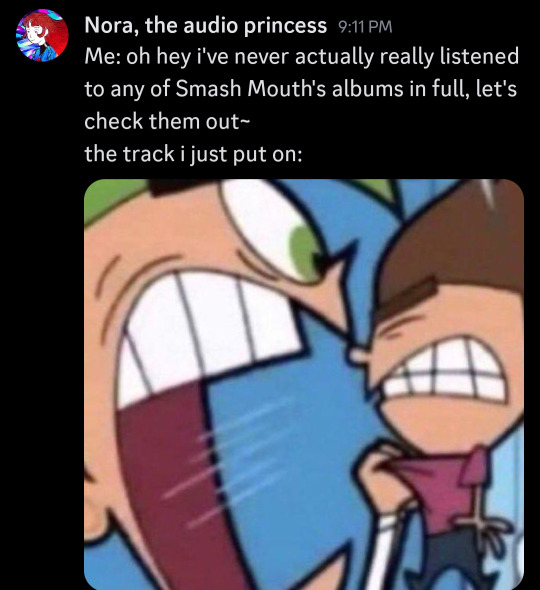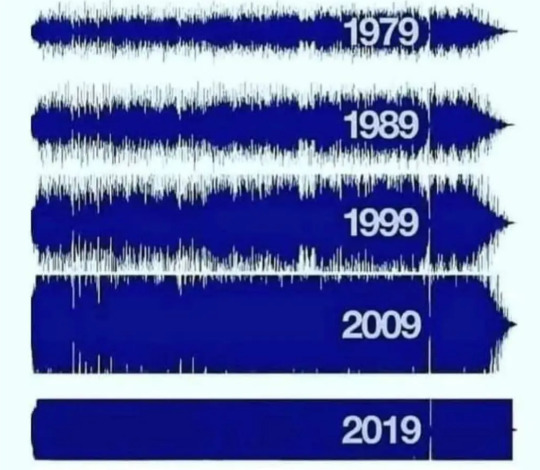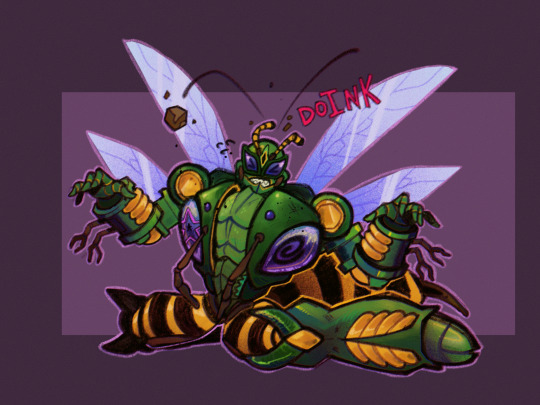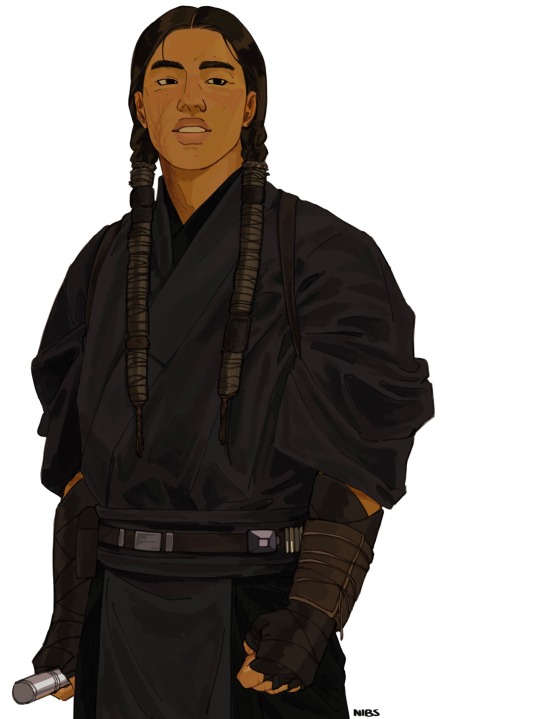#loudness war
Explore tagged Tumblr posts
Text

#the song i chose at random was “I'm a Believer” for the record#smash mouth#loudness war#music mastering that makes my ears cry
1 note
·
View note
Text
La Guerra del loudness
La expresión guerra del volumen (del inglés loudness war) se refiere a la tendencia de la industria musical a grabar, producir y emitir música elevando progresivamente el volumen todos los años creando un sonido que destaca sobre los de años anteriores.
Este fenómeno puede ser observado en muchas áreas de la industria musical, particularmente en la radiodifusión y discos lanzados en CD y DVD. En el caso de los CD, se deriva del deseo de los productores y artistas de crear CD que suenen lo más fuerte posible compitiendo con otros artistas o discográficas. Sin embargo, como la amplitud máxima de un CD llega hasta un nivel establecido, el volumen general sólo puede ser incrementado reduciendo el rango dinámico. Esto se hace incrementando el volumen de las partes bajas, mientras que los picos más altos son destruidos o severamente disminuidos. En ciertos casos extremos de compresión se introduce distorsión o recorte de la forma de la onda de la grabación.
VOLUMEN
Si un CD es reproducido por una estación de radio, ésta aplicará su propio procesamiento a la señal, que reduce aún más el rango dinámico del material transmitido para acercarse aún más a niveles de amplitud absoluta, independientemente de la grabación original.
Los detractores han pedido inmediatos cambios en la industria musical con respecto al volumen. En agosto de 2006, el vicepresidente de A&R de One Heaven Music, una división de Sony Music Company, en una carta abierta criticando la guerra del volumen, dijo que los ingenieros encargados de la masterización estaban siendo obligados en contra de su voluntad a sacar discos con volúmenes más altos para captar la atención de la industria. Los fans les están pidiendo a sus bandas que relancen sus discos con menos distorsión. Esto indica un descontento general con esta práctica y un llamado a poner fin a la guerra.
Muchas bandas han hecho sus registros más fuertes en contra de su voluntad. Varias organizaciones se han fundado para poner la decisión de vuelta en las manos de las bandas. La organización sin ánimo de lucro Turn Me Up! también fomenta la compra de álbumes con volúmenes más bajos colocando el sticker de "Turn Me Up!" en los álbumes con mayor rango dinámico.
Expertos del audio, como un investigador en la House Ear Institute de Los Ángeles, también están preocupados porque el volumen de los nuevos álbumes podrían dañar el oído de los oyentes, en especial de los niños.
Wikipedia

1 note
·
View note
Text

Little good things in big bad times
#my art#art#sketch#rottmnt#rise of the tmnt#rise of the teenage mutant ninja turtles#rise leo#rottmnt leo#rise donnie#rottmnt donnie#disaster twins#rise disaster twins#disaster uncles#?#leo's a 100% dad in my head#but i think he really stepped up to this role only after cassandra's death#you can be a resistance leader but you're still a dad first#the twins are around 25 here#casey jones#casey jones jr#casey jones junior#rottmnt bad future#rottmnt bad timeline#bad future timeline#donnie: i don't like children no thank you they are loud and gross and... and...#donnie looking at lil casey for the first time: ...i will commit literal war crimes for you
4K notes
·
View notes
Text
[:de]Mixes und Masters gefixt 🎛 #Mixing #Mastering #KI [:en]Mixes and masters fixed 🎛 #mixing #mastering #AI [:]
[:de] Vor ein paar Monaten hatte ich schonmal auf remasterte 🍞 BROTESTSONGS hingewiesen. Doch ich hatte mich immer noch etwas getäuscht. Die Arbeit zwischen Musiker und Ton-Mixer zu trennen, ist eigentlich der professionelle Standard – und auch nochmal die Aufteilung zwischen Mixer und Mastering-Ingenieur. Der Ton ist eine eigenwillige Welle, und bis ich mich ab 2016 verstärkt mit Musik-Aufnahme…

View On WordPress
#Andrew Scheps#ear fatigue#iZotope#Kirchhoff EQ#loudness war#oeksound#Rick Rubin#sonible#TBProAudio#Waves#Mastering#Mixing
0 notes
Text

Been watching some more Beast Wars
#Finishing up Beast wars#Why Inferno so silly and loud#waspinator#kollvoxart#transformers#maccadam#digital art#Waspinator gets knocked down but Waspinator get up again you ain’t never gonna keep Waspinator down#love him#beast wars
850 notes
·
View notes
Text

to me Obi-Wan and Anakin are like that guy holding another guy on a leash meme except the leash is Anakin's padawan braid
#and obikin is the same meme but braid tugging is followed by loud moaning#and yeah i know it's on the wrong side. it's for the meme#anakin skywalker#obi wan kenobi#what is art? a miserable little pile of pixels#star wars tag#obikin
3K notes
·
View notes
Text

asuro
[id: it’s a drawing of a human Jedi Knight oc. He has brown skin and dark brown hair which is done in two braids that are wrapped in muted brown cloth. He wears black robes which has its sleeves tied up by a brown tasuki and brown arm guards. On his left arm, the guard is partially covered by lighter brown fabric. He holds his left hand in a fist at his side while the other hand is holding onto his lightsaber. /end id]
#yeah him again#laugh out loud#used krystopher hyatt as a loose reference#star wars#tcw#jedi#jedi oc#star wars oc#nibeul art
2K notes
·
View notes
Text

So this is what Paris felt like
#hades 2#hades ii#hades hera#hades aphrodite#hades supergiant#kyu thinks out loud#i'm gonna start another trojan war
817 notes
·
View notes
Text
did anyone else get criticized as a child for crying too loudly because it wasn’t “pretty” or “graceful”
#i think adults tell children things that stick with them more than they realize it will#but its less about how that child should be a pretty girl or a strong man#and more about how that child should shut up because theyre crying oh so loud ow my ears ouchie my ears#im going to tell them something to make them stop hope it doesn’t shape the identity of modern gender wars forever
175 notes
·
View notes
Text
A Florist's Least Favorite Holiday
Steddie || wc: 1.7k || rating: T || tags: fluff, this is a real thing that happened to me so I wrote about it

Valentine’s day is fucking awful. It’s the worst day of the year, and this year’s no different than the last five Valentine’s days Eddie’s worked in the floral shop.
Eddie’s stripped the thorns from over a thousand roses in the past two weeks, sorting them into buckets by color. The best part about his job is usually bringing a design to life, picking the perfect flowers to create an arrangement like a work of art. Yet somehow, Valentine’s day manages to suck the life out of that too, with little to no creativity between each one-dozen red roses arranged in a fake crystal vase.
Prepping over a month in advance, Eddie has taken almost four hundred orders for pick-up and delivery for the tiny, backwater town of Hawkins. They’re a small shop, with only himself, Chrissy, and Vickie as permanent workers. Thankfully, this year they were able to hire some temporary helpers to blow up balloons, make candy baskets, and take deliveries. Even with the help, that still leaves everything else to the three of them.
Regardless, he’s busting his ass. The newbies have left for both rounds of morning deliveries and the first round of afternoons. Chrissy’s working the counter while Vickie fields complaints. This leaves Eddie to wander the floor, helping confused husbands and boyfriends find the right pick for their spouses.
Working with customers to find something they’re happy with isn’t so bad. He likes guiding them towards answers to questions they didn’t think to ask. Like what their spouse wears, how their home is decorated, what their favorite color is. Every detail helps, and Eddie is, quite genuinely, always happy to help someone who asks– nicely.
He’s on his way back to the counter with an empty bucket in his arms when he spots a guy holding a few roses. Eddie watches, momentarily transfixed, as the man sticks his tongue out in concentration, swiping it over his lower lip. His brow’s furrowed, glancing back and forth between the single-stem lavender and pink roses in the display case in front of him.
Eddie can’t blame the guy, honestly. There’s over twenty different colored roses to choose from this year. Chrissy really went above and beyond to haggle with their suppliers. They’ve got the best of the best, truly something to brag about.
He sets the bucket down underneath a display table so it’s out of the way as he heads over to help. Eddie must catch his attention.
Bright lights from the display case reflect the light hazel tone to his russet colored eyes and shines golden against his softly styled brown hair. A fine dusting of moles across his face and neck perfectly complement his tanned skin.
The prettiest thing in a shop full of pretty things. A goddamn angel.
Except he’s wearing high-top Nike sneakers like the jocks used to wear, along with tight acid-washed jeans, and a grey Members Only jacket. The guy screams straight, ex-jock, fuck boy, even more evident by the two separate roses in his hand as he eyes up a third.
Still, he’s a customer in need. And Eddie is nothing if not a humble servant.
“Can I help you find something?” Eddie asks, only slightly more casual and flirty than his typical customer service voice.
The man’s lips part into a soft ‘oh’ as he stands and stares at him. Eddie quickly glances down at himself, scanning for stray stems or petals hanging from his apron. There’s nothing there, at least nothing worth gawking at. Maybe he’s got something in his teeth? Shit, he should’ve checked first.
“Uhh–,” the man says, intelligently, interrupting Eddie’s own internal spiral– “I was just looking at, you know.” He gestures to the buckets of roses without taking his eyes off Eddie. “I need one more, and can’t decide on a color.”
“Three roses, huh?” Eddie says, the joke rolling off the tip of his tongue before his mortified brain can prune it, “One for each girlfriend, that’s sweet of you.”
Fucking Christ. He wishes he’d kept the bucket of water to drown himself in, like this day can get any worse.
This beautiful, angel of a man scoffs at the unbecoming joke and yeah, Eddie can’t blame him. For someone who not only prides himself on his customer service skills, but also his charm, this is a royally large fuck up.
The man grabs the lavender rose, holding it out to Eddie along with the two other pink and white ones already in his hand. “This is for my best friend. This one–” he holds out the pink– “is for my adopted sister.”
“Oh,” Eddie says, before the guy cuts him off.
“And this one–” he shows off the white rose– “is for my Gran. I’m stopping by the cemetery on my way home and thought she’d like it.”
Forget drowning in a bucket of leaf water, Eddie deserves to be crushed under the weight of a million roses, thorns tearing him into tiny little pieces.
“Right,” Eddie huffs, annoyed with himself. He scrubs his hands roughly over his face, like he can erase the embarrassed flush burning up his neck to the tips of his ears. “I’m so sorry, man. I have no idea why I said that. It’s just–” Eddie waves his hand around the store– “it’s been a long day, and sometimes I think I’m funny when I’m really, really not. I’m not normally this awkward, and I’m typically much better at my job.”
At this, the guy smirks, like watching Eddie squirm is entertaining. It’s the least he can do, if his misery makes the man feel better. He eyes Eddie up and down, so slowly that Eddie feels like his skin's on fire. Probably the display lights... they can really heat up some days.
“Can you ring me up?”
Eddie nods, thankful how quickly he seems to let the entire confrontation go. They make their way to the counter, Chrissy eyeing him as he asks her to switch for a second. She eyes the customer and nudges Eddie, where he notices a playful smirk on her face. Jesus, she’s nosey. He only rolls his eyes as she walks off.
Doing his best to avoid eye contact, Eddie focuses solely on wrapping up the flowers in the pretty, heart-printed paper they bought specifically for the day, and ties a matching colored bow to each package.
He feels the unrelenting urge to fix this, unsure why it matters so much to him. This guy most likely won’t even be back until next year, just like the rest of the customers he’s helped today. Eddie shouldn’t treat this one customer any different because he’s cute.
And yet.
“I actually think you’re really sweet!” Eddie blurts, thrusting the packaged roses into the guy’s waiting arms. “Shit, I meant it’s sweet you’re buying them gifts. I didn’t mean you’re sweet. Not that you’re not sweet, I mean– goddamnit.”
He’s smiling at Eddie, like this is all an adorable spectacle and not the worst experience of every Valentine’s day Eddie’s ever had. God, that fucking smile makes Eddie’s insides melt.
“Really?” His voice is playful, if yet a little shy. Eddie buys into it, of course he does, desperate to make up for his flailing.
“Yeah, definitely sweet– adorable, even. Positively charming.” Eddie’s on better footing now, watching a rosy blush bloom underneath tanned freckles. There’s a line of customers grumbling about the wait, but Eddie doesn’t care, not so long as he gets to keep staring at the ray of sunshine smiling back at him.
His smile turns coy as he locks eyes with Eddie and says “I’m single, you know."
Eddie can’t think to respond over the roaring static in his ears, brain going into full shut-down mode. Did he just–
“What?” And Eddie’s back to being a total buffoon.
It must be cute though, because the guy laughs as he leans forward to grab one of the shop’s business cards next to the register. He writes something on it, then hands it back to Eddie who flips it around in his hands to read it.
Call me, and thanks for your help.
♥️ Steve
There’s a phone number listed below the man’s– Steve’s– name. An actual, honest to god phone number. From a man who looks like he could work in Hollywood for a living.
Eddie can feel his own face splitting in two with how hard he’s smiling. He reads the simple note once, twice, three times before he remembers where he is and who’s still standing in front of him.
Steve looks hopeful, eyes flitting between Eddie and the note as he fiddles with the bow on one of the packaged roses.
“Yes,” Eddie practically shouts, glee saturating his tone. “I’ll definitely call you tonight. Well–” Eddie glances around the shop, spotting the scattered empty buckets, piles of dead leaves on the ground, and the stack of unprocessed delivery tickets– “maybe I’ll call you tomorrow.”
And Steve nods, like it’s that easy, and shyly answers, “Can’t wait,” before heading out the door, sending a dorky little wave over his shoulder as he goes.
Somehow, Eddie manages to recover enough of his higher brain power to work the rest of the day. He falls back into routine: boxing vases, filing orders, dumping rotten plant water, scrubbing buckets, and organizing the back cooler. It’s almost midnight by the time he gets home, slightly earlier than he expected.
His feet ache like they always do, and he’s so emotionally drained that Eddie thinks he could go the rest of his life without talking to another customer ever again. Except he thinks, fiddling with Steve’s note, maybe there’s one customer he'd talk to again.
Tomorrow, though. Definitely tomorrow.
divider kudos <3
#i've got so many valentine's day war stories#this one takes the cake though - thought i was going to die of embarrassment#this isn't exactly how it happened but it was close#i was working the counter surrounded by my coworkers when I said that shit out loud and immediately wanted to die about it#the guy was nice and yeah i got his number but nothing really came of it#oh and the part about a flower for his dead grandma YEAH! ALSO TRUE!#still... it haunts me lmao#steddie#steddie fic#steddie ficlet#valentines day#steve harrington#eddie munson#florist eddie munson#floral shop au#stranger things#stranger things fic#queeniewritesstories#hot off the press <3
279 notes
·
View notes
Text








🔥ISB Cal Kestis🔥
Wearing Denvik's uniform better than he ever could. 😍🥵
#cal kestis#jedi survivor#star wars jedi survivor#my screenshots#ISB Cal#I love a man in uniform#YES officer#arrest me#wait did i say that out loud#Yes and by now no one should be surprised#my obsession#virtual photography#xbox
163 notes
·
View notes
Text
i think phil has a crush on him
#lou is loud#dnp#dan and phil#phan#just now watching the phupload#phil is sooooo giggly omfg#adding phandommetrics tags anyway... maybe someday she'll return from the war :(
152 notes
·
View notes
Text


eating it sloppy style <3
#god imagine how loud the blowjobs must be#happy webgott wednesday#it's actually a little bit concerning how i mark the days by unofficial hbo war holidays#band of brothers#joe liebgott#david webster#webgott
198 notes
·
View notes
Text
LOUD.
part one two three four five six seven eight nine

“You’ve got something there,” Quin says, gesturing vaguely at his own shoulder.
“I’m aware,” Obi-Wan signs. “It’s some sort of monkey lizard fungus.”
The monkey lizard fungus giggles into his shoulder.
Quin nods grimly. “I heard the only cure is to placate it with sweets and hope for the best.”
Anakin precariously leans over, heels accidentally digging into still bruised ribs.
Obi-Wan bites his lips behind the collar but of course Quin immediately detects his movements turning stiff.
Quin holds out an arm, flexing his bicep with wiggling eyebrows. It has the desired effect and Anakin jumps from Obi-Wan, swinging around the elbow before hooking his knees over Quin’s arm.
“He’s heavier than he looks,” Quin strains out.
They walk to one of the mess halls that’s open around the clock and mainly offers food and beverages to those clinging with teeth to their sanity during exam season.
One of the cramming Padawans looks up from their dozen holo books displaying graphs, and squints at them. “Master Vos, there’s something growing out of your arm?”
“Monkey lizard fungus,” Obi-Wan signs, hiding a smile behind his collar at the Padawan nodding to themselves as if that makes perfect sense.
“What’s with them?” Anakin asks, looking at the sleep deprived tableau and hoisting himself up and swinging one leg over Quin’s shoulder.
“This is your future,” Quin says gravely and Obi-Wan is catapulted to melting stone fire Darkness “You were supposed to be my Master!” yellow familiar eyes from a smoking alive corpse and the grief is ripping him apart “—see once you take your first assignments. The only places you’ll be is either here or the Archives.”
It’s been years since he last had a vision. It’s staggering, his heart thumping in his chest like a clock ticking down the inevitable countdown. But it’s not.
He looks over to Anakin who’s already watching back with wide eyes, the fear in his hands gripping onto Quinlan. “I won’t let it come to that,” he promises, fingers thudding together heavily but he’s still shaking off the vision and Anakin’s fear is a taste in the air by now. He can’t not make promises he only hopes he can keep.
Quinlan is silent during their exchange, gloved hands keeping hold of Anakin. The calculating look in his eyes a guarantee Obi-Wan is going to get cornered later.
.
“Do you like Depa being your Master?”
Let it be said, paranoia is a common infliction amongst Shadows.
“Obi-Wan,” Anakin sighs, voice breaking with puberty and annoyance. “Depa is wizard. She’s amazing even though she’s signed me up to all these classes.”
Obi-Wan looks over all the models, plans, and concepts with added calculations. There’s a data pad displaying language modules and another proclaiming the joys of agriculture. “It’s almost all in the engineering field,” he signs.
“Which makes her so wizard. You’d never have me taking up gardening though,” Anakin adds sullenly.
Don’t yearn for things I cannot give you, Obi-Wan has thought a lot in the past few years as the Galaxy seems to slowly steep in Darkness.
“Knowing what can poison you is important,” he signs, feeling restless and helpless. The mission he’s finished two cycles ago may still reside in his bones.
“I’ll just bite back,” Anakin says, tongue sticking out as he connects wires to ports. He presses a button and the thing he’s been tinkering with since before Obi-Wan left starts to purr smoothly. “Now she can even juice cocadooms,” he says, satisfaction purring just as smoothly in his voice.
“Well done.”
“I know,” Anakin responds airily and swivels around to face Obi-Wan fully. “You’re lurking in the shadows again so let’s get this tradition over with: Depa is an awesome Master and maybe I sometimes wish you’d have chosen me but,” he adds loudly when Obi-Wan lifts his hands to protest, “I also sometimes daydream Master Tiin had chosen me because he’s got his own modded Delta-7.”
The paranoia settles down as Anakin waxes over how wicked the new wing box skins and sensor fusions are, no, truly, you should see them, Obi-Wan!
#loud au#jedi shadow!obi wan#mute!obi wan#obi wan kenobi#anakin skywalker#star wars#star wars au#my art#frostbitebakery art
666 notes
·
View notes
Text

Let’s pretend it’s still May 4th and it was a rebel pilot uniform all along
#leaf doodles art#sketch#jimmy solidarity fanart#solidarity gaming fanart#jimmy solidarity#MCC#star wars#I laughed OUT LOUD when I realized he wasn’t actually a rebel pilot#may the fourth be with you
565 notes
·
View notes
